Ngugi wa Thiong’o, the legendary Kenyan writer and fierce advocate for decolonization, left behind an open letter to President William Ruto before his death on Wednesday May 28, 2025, at the of age 87.
In it, Ngũgĩ condemned Ruto’s state visit to Washington in 2024, calling his alignment with NATO a “betrayal” of Kenya’s anti-colonial legacy and accusing him of surrendering African sovereignty to Western interests.
“The images of your recent State visit to the USA were very disturbing to me and to every patriotic Kenyan,” Ngũgĩ wrote.
“You had agreed to become NATO’s errand boy in America’s struggle with Russia and China for access to resources of the continent,” he added.
Ngugi wa Thiong’o to Ruto
The author, best known for seminal works such as Petals of Blood and Decolonising the Mind, spent his life championing African languages and resisting neocolonial power structures.
In his letter, he drew historical parallels between Ruto’s decision and the tragic outcomes of foreign interference in places like Libya and Haiti.
“Do you know that NATO murdered Muammar Gaddafi so that Libyan oilfields… would revert to the West?” Ngũgĩ asked, showing Gaddafi’s legacy as a former African Union chairman.
Also Read: Ngũgĩ wa Thiong’o Decorated Profile: From Prison to Award Winning Author
He also invoked the legacy of Haiti’s 1804 independence from French slavery, only to be destabilized by Western powers in the years that followed.
Ruto Visit to US
While Ruto met with U.S. President Joe Biden in the White House, protestors in the streets of Port-au-Prince, Haiti, denounced the Kenyan president as a “slave,” opposing Kenya’s planned leadership of a multinational police force aimed at restoring order in the embattled Caribbean nation.
“Ruto, do you see the irony of your actions?” Ngugi wrote, drawing attention to the history of settler colonialism shared by both the U.S. and Kenya.
“You have chosen to betray that history of pride… You have chosen to sell your country cheap,” he added.
Also Read: Ngũgĩ wa Thiong’o’s Death Reminder: Kenya’s State Security Still Serves Political Repression
Profile of Ngũgĩ
Born in Kenya, in 1937, he rose to prominence as part of a post-independence literary movement that sought to tell African stories in African voices.
He later renounced writing in English and began producing his work in Gĩkũyũ, his mother tongue, as a political act.
Arrested and imprisoned without trial by President Daniel Arap Moi’s regime in 1977, Ngugi spent decades in exile, teaching at universities abroad but never ceasing to speak on behalf of the oppressed.
Ngugi wa Thiong’o is survived by his wife, Njeeri wa Ngũgĩ, and several children. Tributes from across the continent and literary world are pouring in, hailing him as a warrior for language, memory, and African dignity.
Follow our WhatsApp Channel and X Account for real-time news updates



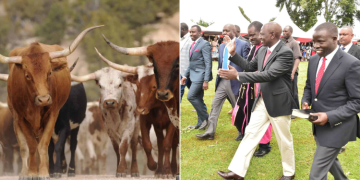
![[Live Blog] Raila’s Body Arrives At Mamboleo Grounds A Photo Of Aircraft Carrying The Body Of Raila Landing At Mamboleo Grounds.](https://thekenyatimescdn-ese7d3e7ghdnbfa9.z01.azurefd.net/prodimages/uploads/2025/10/a-photo-of-aircraft-carrying-the-body-of-raila-landing-at-mamboleo-grounds.-photocitizen-360x180.png)
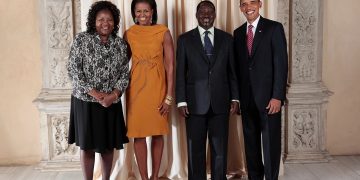


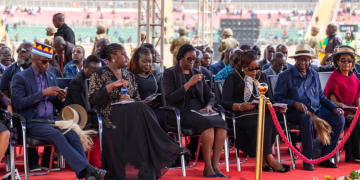
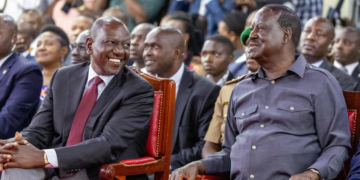












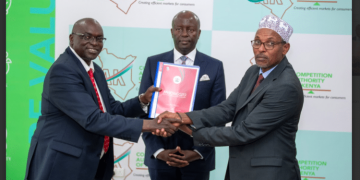
















































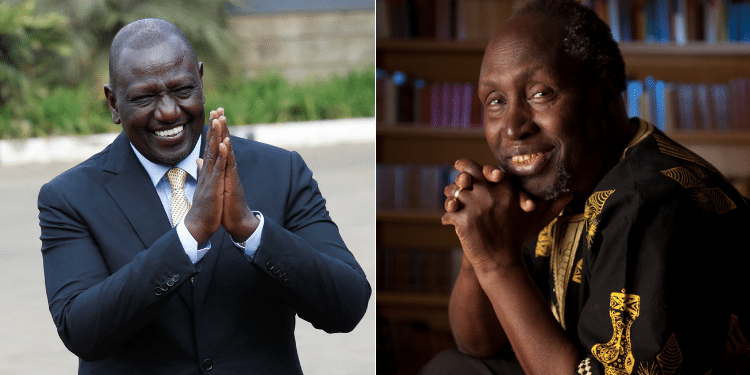


![[Live Blog] Raila’s Body Arrives At Mamboleo Grounds A Photo Of Aircraft Carrying The Body Of Raila Landing At Mamboleo Grounds.](https://thekenyatimescdn-ese7d3e7ghdnbfa9.z01.azurefd.net/prodimages/uploads/2025/10/a-photo-of-aircraft-carrying-the-body-of-raila-landing-at-mamboleo-grounds.-photocitizen-120x86.png)
